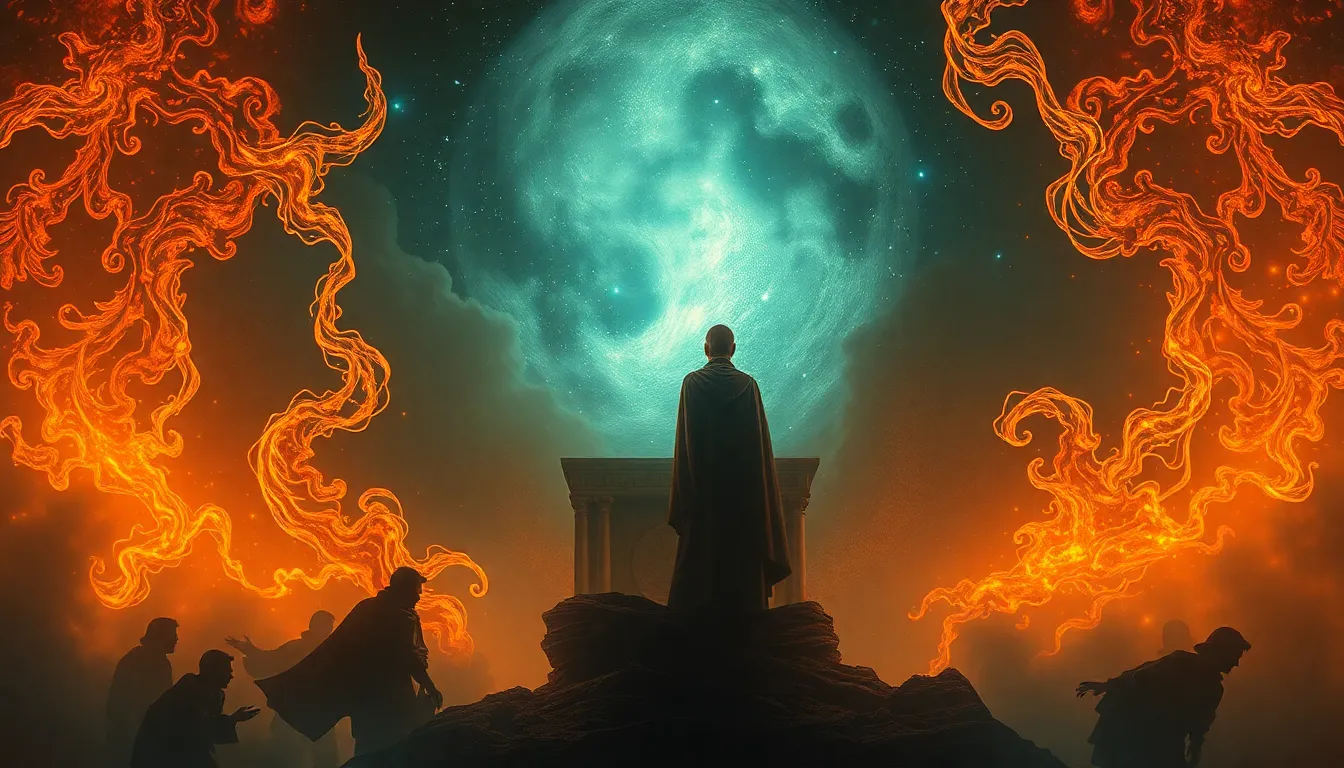The Myth of the Great Teacher: Morality in Knowledge
I. Introduction
The myth of the Great Teacher refers to the idealization of educators as infallible sources of knowledge and moral authority. This archetype suggests that a single teacher can profoundly influence students’ lives through their wisdom and character. However, this notion raises critical questions about the relationship between knowledge and morality.
This article aims to explore the complex interplay between knowledge and morality within the educational landscape. By dissecting the Great Teacher myth, we will examine how it has shaped educational practices, the implications for student autonomy, and potential pathways for future teaching methodologies.
II. Historical Context of the Great Teacher Archetype
The concept of the Great Teacher has its roots in various cultural and historical contexts. From ancient philosophers like Socrates, who emphasized moral reasoning, to Confucius, who championed ethical leadership, the archetype has evolved across civilizations.
- Ancient Greece: Socratic dialogue emphasized moral virtue.
- Eastern Traditions: Confucius promoted moral education as foundational to society.
- Western Enlightenment: Thinkers like Rousseau and Kant contributed to the moral dimensions of knowledge.
Throughout history, figures such as Aristotle, John Dewey, and Maria Montessori have embodied aspects of the Great Teacher ideal, advocating for moral and intellectual development in their students.
III. The Role of Morality in Knowledge Acquisition
Morality encompasses principles concerning the distinction between right and wrong or good and bad behavior. In education, morality plays a crucial role in shaping the values and attitudes of learners.
Ethics in knowledge sharing carries significant implications:
- Integrity in the dissemination of information.
- Responsibility for the impact of knowledge on society.
- Cultivating a learning environment that respects diverse perspectives.
Moral values influence the learning atmosphere, fostering respect, empathy, and collaboration among students and educators.
IV. The Impact of the Great Teacher Myth on Education Systems
The Great Teacher myth profoundly influences educational methodologies and student psychology. This archetype can lead students to develop a dependency on authority figures, hindering their critical thinking and independence.
Teaching methodologies influenced by this myth often emphasize:
- Didactic approaches that prioritize lecture-based learning.
- Assessment methods that focus on rote memorization rather than critical analysis.
Case studies reveal varied responses to this myth. Some institutions, like Montessori schools, embrace collaborative approaches that reject the singular authority of the teacher, while others maintain traditional hierarchical structures.
V. Critiques of the Great Teacher Myth
Idolizing individual educators can have detrimental effects on both teaching and learning. The Great Teacher myth:
- Undermines the collective effort of educational communities.
- Restricts student autonomy by fostering dependency on a single authority.
- Limits critical thinking, as students may accept knowledge without question.
Alternative educational philosophies, such as constructivism and cooperative learning, challenge this myth by promoting shared responsibility for knowledge and moral development.
VI. Knowledge as a Double-Edged Sword
Knowledge can be both a force for good and a tool for harm. Its dual nature raises important ethical considerations for educators.
Historical examples illustrate the misuse of knowledge:
- The propaganda used during wartime to sway public opinion.
- Scientific advancements leveraged for destructive purposes, such as nuclear weapons.
Educators bear the responsibility of cultivating ethical knowledge, encouraging students to reflect on the moral implications of their learning.
VII. The Role of Collaborative Learning in Moral Development
Collaborative learning environments foster moral reasoning by encouraging dialogue and diverse perspectives. This approach helps students develop critical social skills, empathy, and ethical decision-making.
Successful collaborative educational frameworks include:
- Peer-to-peer learning models.
- Project-based learning that emphasizes teamwork.
- Interdisciplinary studies that encourage holistic understanding.
These methods not only enhance academic learning but also contribute to the moral development of students.
VIII. The Future of Teaching: Moving Beyond the Great Teacher
The future of education lies in innovative teaching models that prioritize collective knowledge and moral reasoning. Emerging trends include:
- Flipped classrooms that leverage technology for collaborative learning.
- Peer learning strategies that diminish the traditional authority of the teacher.
- Integrating moral reasoning into academic curricula to instill ethical awareness.
These innovations challenge the Great Teacher myth, promoting a more egalitarian approach to education.
IX. Case Studies: Real-Life Applications and Implications
Profiles of educators who either embody or reject the Great Teacher myth reveal valuable insights:
- Edna Mode: A fictional character who emphasizes creativity and collaboration over singular authority.
- Paulo Freire: An educator who advocated for critical pedagogy and the empowerment of learners.
Programs promoting ethical knowledge sharing, such as service-learning initiatives, demonstrate the potential for education to encompass moral development alongside academic achievement.
X. Conclusion
In summary, the Great Teacher myth presents both opportunities and challenges within educational systems. While the idealization of teachers can inspire, it also risks undermining student autonomy and critical thinking. As we move forward, redefining the role of teachers to emphasize collaboration, ethical reasoning, and shared responsibility for knowledge will be essential in nurturing a generation of learners capable of navigating the complexities of the modern world.



